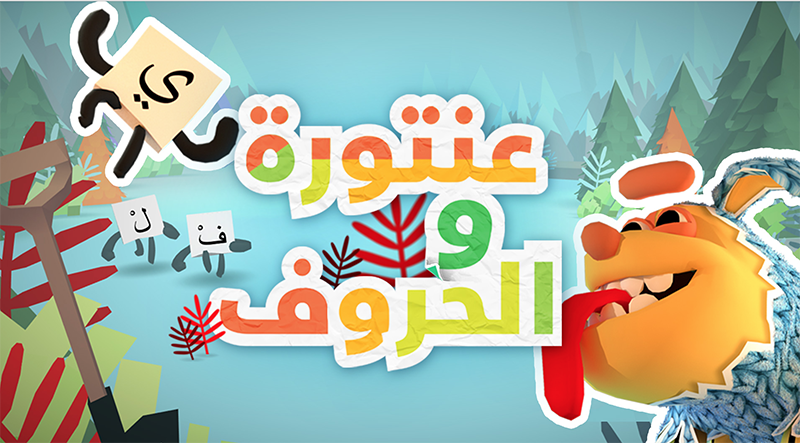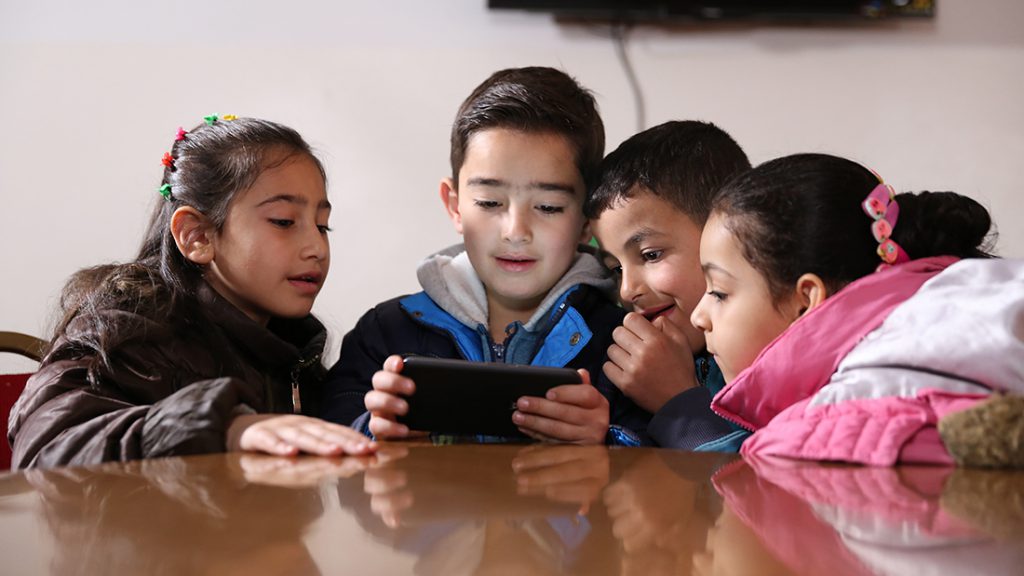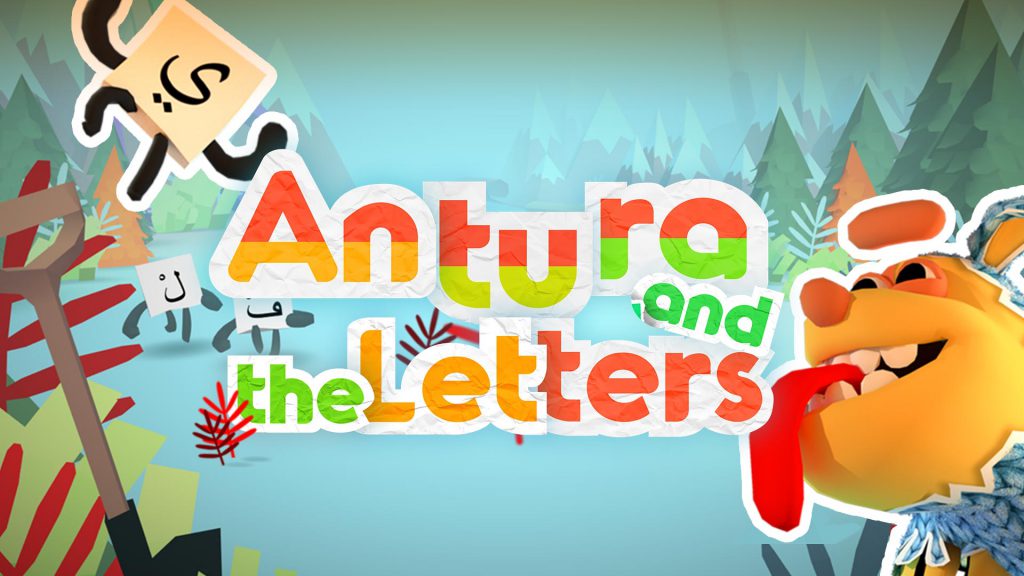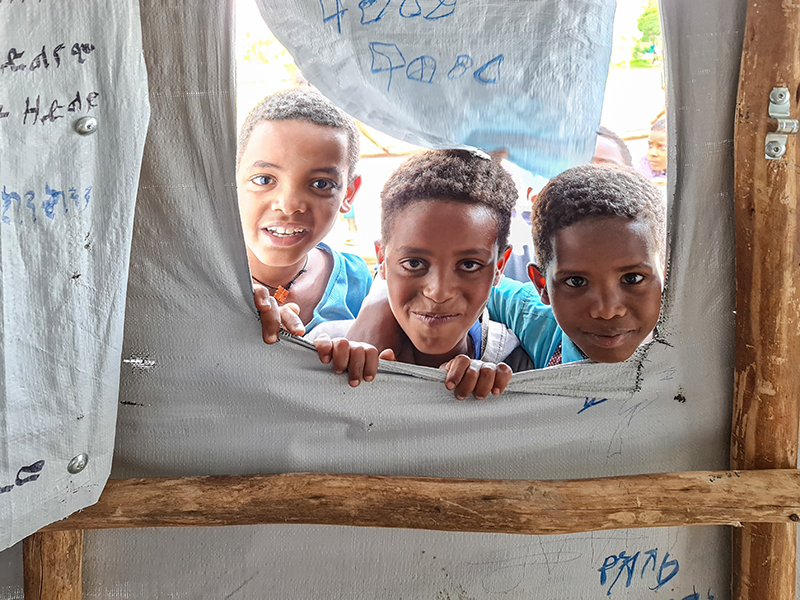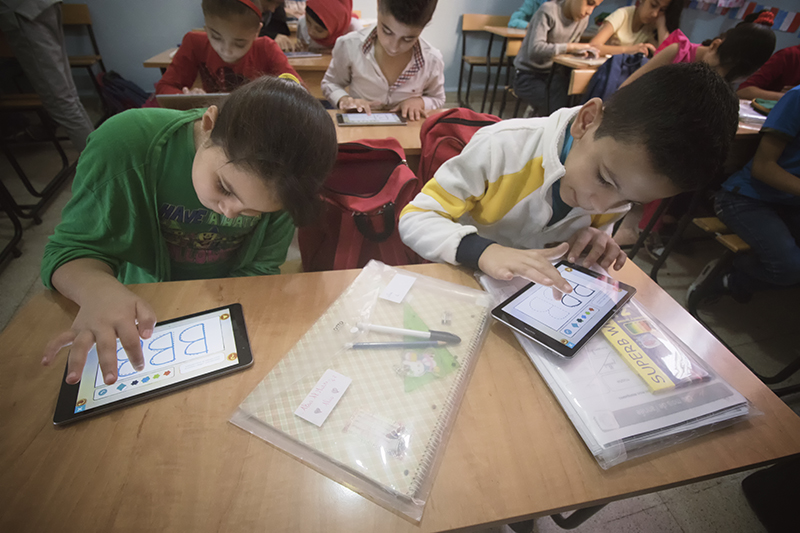An estimated 2.3 million Syrian children are out of school due to the violent conflict in their country more than 10 years ago; since February 2022, more than 1.5 million children have fled Ukraine as refugees; today, an estimated 2.6 million Afghan children remain in exile… The war has abruptly disrupted educational opportunities for these children, who must also cope with memories of multiple traumas and high levels of stress that affect their ability to learn.
Antura and the Letters was born in 2016, by the hand of Cologne Game Lab, Wixel Studios, y Video Games Without Borders when the Syrian conflict had been raging for five years. The Norwegian Agency for Development Cooperation launched a call for innovation to help Syrian refugee children learn to read independently on their family phone without the need for an internet connection. Today, the game is used to learn to read in several languages (including English, German, Italian, Polish and Spanish) and has been adapted to address other emergencies and learning needs in different contexts, focusing on three humanitarian crises: Syria, Afghanistan and Ukraine.
Antura is a cute little dog who helps his owner, the Guardian (the player) to observe small living letters. The game contains several journey maps that correspond to the stages of learning to read and write in each language. When they complete the game, students complete a basic literacy plan in their language. In addition, the interaction generated by the story that they go through in the different levels of the game favours the development of psychosocial skills that allow them to combat the tensions that children face on a daily basis.
Digital Games Based Learning
The methodological approach of the game is Digital Game Based Learning (DGBL), an instructional method whereby educational content or learning objectives are incorporated into digital games. Studies indicate that this methodology has gradually become a trend and that it could improve students’ motivation and learning performance, reduce their cognitive load and anxiety (Chen and Tu, 2021).
Digital Games-Based Learning is also an innovative approach to learning, which offers the potential to address some of the challenges faced by educators in the MENA region in the MENA region y in contexts of armed conflict. DGBL is a method to motivate students through entertainment. Specifically, it offers the potential to reduce barriers to access to learning materials and alleviate the imminent need for physical learning environments. It also creates opportunities for iterative and personalised learning.
Tested and verified
To test the effectiveness of the video game, both in terms of learning outcomes and psychosocial influence, an impact evaluation was carried out comparing the improvement in literacy outcomes of children in mixed environments (those who did not have access to the applications and those who did). The children involved in the study were Syrian nationals, aged 5-10, living in the Azraq refugee camp in Jordan, with little or no schooling.
The findings of the evaluation were very encouraging as they showed that the game did indeed introduce players to basic Arabic literacy concepts, achieving positive learning outcomes in all age and gender groups with a short programme of 27 hours. Thus, the tested students showed substantial improvements compared to the control group: for example, in decoding rare words (81% vs. -11%), oral reading fluency (71% vs. 0), syllable reading (51% vs. 8%) and letter sound knowledge (34% vs. 0).
Moreover, at the psychosocial level, according to the experts’ report, the sense of achievement and learning seems to have contributed to the children’s feelings of happiness. The game allowed them to develop a sense of belonging and attachment, either through player profiles or by personalising Antura. Interaction with peers increased during the game, which had a positive impact on emotional states and social behaviours. The game also generated high levels of motivation for learning.
Parents have also noted changes in their children’s attitudes towards studying, stating that the game had positively affected their ability to study and their interest in learning.
Antura and ProFuturo
ProFuturo has incorporated the use of this application, in its Arabic version, in the contexts with refugee children in which it works.
Learning conditions in complex emergency, conflict and refugee contexts are challenging and require disruptive and innovative solutions. Digital education can help us overcome the many challenges faced by children living in these contexts. Let’s make it happen.
REFERENCES
Chen, C. C. and H. Y. Tu. (2021). The effect of Digital Game-Based Learning on learning motivation and performance under social cognitive theory and entrepreneurial thinking. Front. Psychol. 12:750711. https://doi.org/10.3389/fpsyg.2021.750711
UNICEF. (2015). Education under fire.
https://www.unicef.org/mena/media/2271/file/EducationUnderFire-September2015.pdf.pdf



